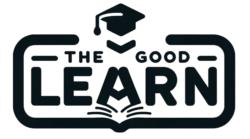In today’s digital age, where information is readily available at our fingertips, it has become more important than ever to develop critical thinking skills. With the vast amount of information, opinions, and advertisements bombarding us on a daily basis, it is crucial to be able to sift through the noise and think critically about the information we encounter.
Why are critical thinking skills important?
Critical thinking skills are essential for making informed decisions, solving problems, and evaluating the credibility of sources. In a world where fake news spreads rapidly, it is imperative to be able to distinguish between reliable information and misinformation. By developing critical thinking skills, individuals can better understand complex issues, analyze arguments, and make logical conclusions.
How can we develop critical thinking skills?

Here are some strategies to develop critical thinking skills in a digital age:
- Question everything: Encourage curiosity and ask questions about the information you encounter. Is the source reputable? What evidence supports the claims made? Are there any biases or hidden agendas?
- Seek diverse perspectives: Expose yourself to different viewpoints and opinions. Engage in discussions with people who hold different beliefs to broaden your understanding of various topics.
- Evaluate the credibility of sources: Assess the reliability of sources by considering factors such as expertise, objectivity, and evidence provided. Look for trustworthy sources and avoid relying solely on social media or unverified websites.
- Practice critical reading and listening: Analyze the content you consume. Pay attention to the arguments presented, the evidence provided, and any logical fallacies or biases.
- Develop information literacy skills: Learn how to effectively search for and evaluate information online. Understand how search engines work, how to use advanced search techniques, and how to distinguish between credible and unreliable sources.
- Engage in problem-solving activities: Solve puzzles, riddles, or participate in activities that require logical reasoning and problem-solving. This helps develop analytical thinking skills.
- Encourage critical thinking in academic settings: Teachers can incorporate activities and assignments that promote critical thinking in the classroom. This can include analyzing primary sources, engaging in debates, and evaluating different perspectives.
The benefits of developing critical thinking skills
Developing critical thinking skills has numerous benefits:
- Better decision-making: Critical thinking helps individuals make more informed and reasoned decisions, minimizing the risk of making hasty or irrational choices.
- Improved problem-solving: By thinking critically, individuals can identify the root cause of a problem and develop effective solutions.
- Enhanced creativity: Critical thinking encourages individuals to think outside the box, explore different possibilities, and come up with innovative ideas.
- Effective communication: Critical thinking skills enable individuals to articulate their thoughts and ideas clearly and concisely, making them more persuasive and influential.
- Resilience against misinformation: With the ability to critically evaluate sources, individuals can better identify misinformation and avoid being misled by false information.
Developing critical thinking skills in a digital age is of utmost importance. By questioning information, seeking diverse perspectives, and evaluating sources, individuals can navigate the vast sea of information and make informed decisions. The benefits of critical thinking extend beyond personal growth and extend to various aspects of life, including problem-solving, decision-making, and effective communication.

